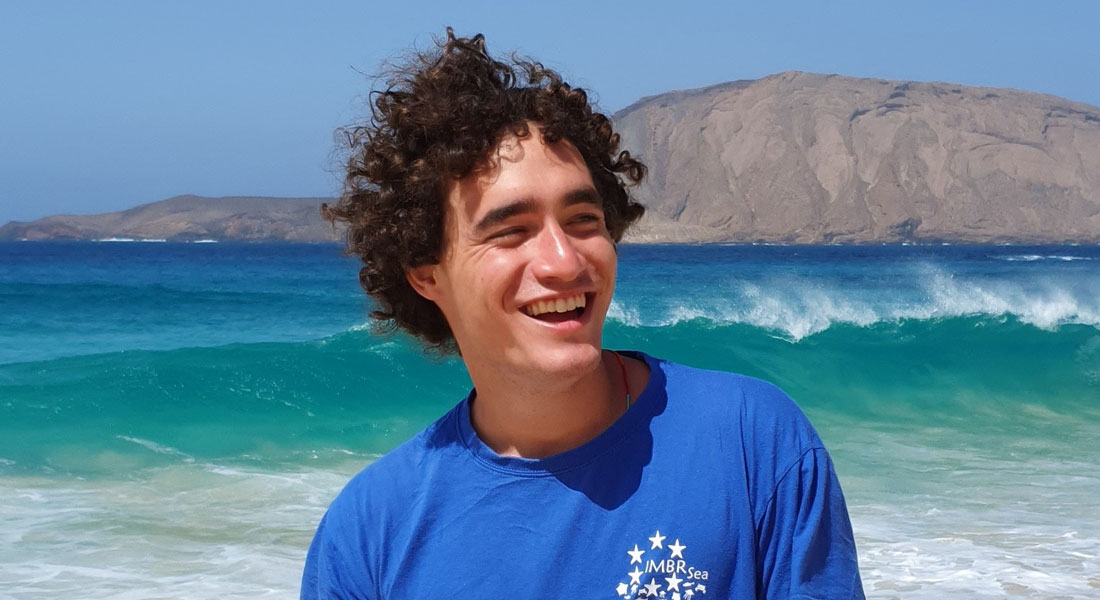Manuel Thibaud Blonc

Email: manuelthibaud.blonc@imbrsea.eu
Affiliation: University of Barcelona, Spain
Growing up in Latin America, I had the chance of going on regular trips to the coast and rainforest, which quickly sparked my curiosity and passion for natural environments and pushed me to become a skilled SCUBA-diver to be able to fully experience the oceans and witness first-handed the enormous variety of life these ecosystems harbour. For this reason, I decided to undertake a BSc in Marine and Freshwater Biology at Aberystwyth University, in Wales, followed by an International MSc in Marine Biological Resources, Ecology, and Conservation (IMBRSEA), coordinated by Ghent University, in Belgium. During this period, I developed an ever-growing interest for animal behaviour, I gained valuable experience in fish husbandry, handling, and experimenting, and became proficient in statistical analysis.
After graduating from the IMBRSEA, I decided to deepen my understanding on aquaculture, eager to integrate this sector, contribute to the sustainable development of the industry, and participating in the effort to reduce the impact of anthropic activities on the environment, while reaching to ensure global food security. Therefore, I graduated from an MSc in Sustainable Aquaculture at the University of Stirling, in Scotland, during which I carried out my thesis on animal health and welfare, and that subsequently led me to taking part in the project presented below.
ESR8: Examination of fish health and welfare indicators by omics and imaging technologies to pinpoint stress and immune-compromising parameters
Project description
During this Ph.D., the Early-Stage Researcher (ESR) will investigate the response of different fish species of particular commercial interests to a variety of stressors they might encounter in Recirculated Aquaculture Systems (RAS). Through a comprehensive approach, the main objective of this project is to determine the endocrine, immune, and nervous response of widely cultivated fishes (e.g. Oncorhynchus mykiss) under RAS conditions. To this end I will compare the reaction of systemic and peripheral systems to emerging contaminants (i.e. nanoplastics, pharmaceutical waste), repeated hypoxia, handling, and sudden changes in water quality. By employing different -omics techniques, in conjunction with physiology, haematology and imaging methods (e.g. for behavioural analysis) the aims of this project are to 1) assess how the integrated biomarkers hereby considered are affected by each stressor, 2) determine how these systems interact with each other, and 3) achieve a comprehensive understanding of the potential impact of these stressors on the overall health and welfare of the fish.
This project will employ, as much as possible, non-lethal matrices (e.g. blood, plasma, skin mucus, water components) in order to avoid sacrificing animals needlessly, following the recommendations of the European Union. The ESR is highly interested in publishing the obtained results in high-impact journals relevant to the area of investigation, as well as participating and promoting science communication to the general public, in particular regarding the need for animal care in food production related activities.
